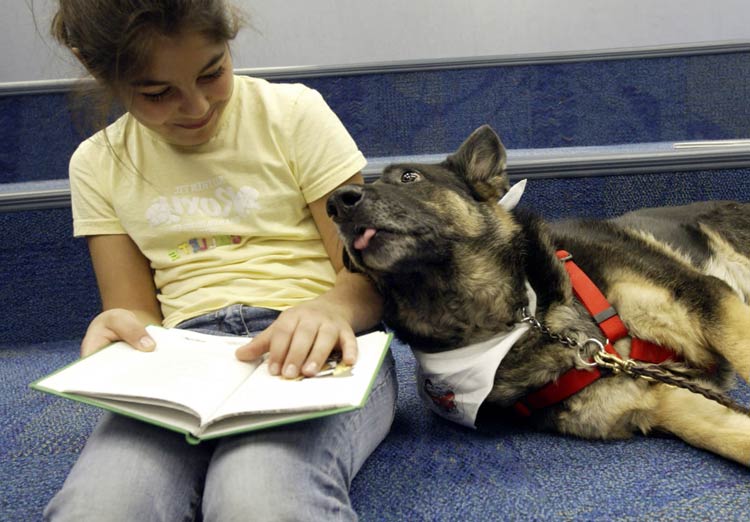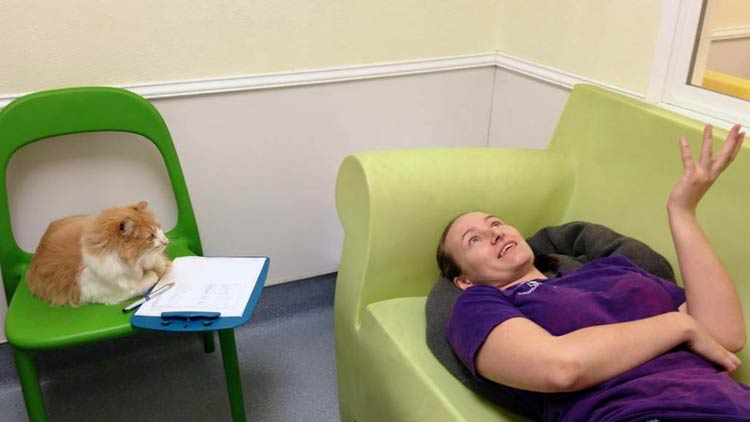The Positive Effects of Pet Therapy Programs in College Environments
The bustling environment of a college campus, with its constant flow of academic challenges and social interactions, can be both exciting and stressful for students. In this dynamic setting, universities are continuously exploring innovative methods to support the mental health and well-being of their student bodies. One such approach gaining popularity is pet therapy, a program that brings trained animals to campus to interact with students. These programs have shown remarkable effects in reducing stress and anxiety and improving overall student morale.

The Impact of Pet Therapy on Student Wellness
Psychological Benefits of Interaction with Animals
Pet therapy sessions on college campuses provide substantial psychological benefits. When students interact with animals, especially dogs and cats, known for their amiable disposition, they experience a notable reduction in stress and anxiety. The comforting presence of these animals offers emotional support, which is extremely valuable during periods of intense academic pressure, such as during exams or finals week.
Extended Emotional Support and Resilience Building
These therapy animals act as a source of unconditional support, helping students build resilience against academic and personal challenges. Regular interaction with therapy pets can lead to long-term improvements in students’ mental health, fostering a more positive outlook on life and enhancing their ability to cope with future stressors.
Physical Health Improvements
Pet therapy extends beyond mental and emotional well-being to include physical health benefits. Engaging with animals has been shown to lower heart rate and blood pressure, reduce the secretion of stress-related hormones, and stimulate the production of endorphins. These physiological changes contribute significantly to an individual’s overall health and can lead to a more balanced lifestyle.
Boost to Immune System and Physical Activity
Regular interaction with pets has also been linked to a stronger immune system. Additionally, activities involving therapy animals often encourage physical movement, which is beneficial for students who spend long hours sitting in lectures or studying.
Creating a Community and Social Bonding
Pet therapy sessions provide a unique opportunity for socialization on college campuses. They create a common ground for students, staff, and faculty, promoting interactions and friendships that might not have occurred otherwise. This sense of community is especially important in large college environments where students may feel lost in the crowd.
Enhancing Emotional Connections and Empathy
These interactions also enhance students’ capacity for empathy and understanding, as caring for an animal fosters a sense of responsibility and emotional connection. This environment of shared care and interaction contributes to a more cohesive and empathetic campus community.

Academic Performance and Pet Therapy
Enhanced Focus and Productivity
The calming influence of animals has been correlated with improved focus and productivity among students. The non-judgmental presence of therapy pets can help in alleviating mental blocks, thus allowing students to concentrate better on their studies, leading to potential improvements in academic performance.
Reduction in Dropout Rates
Colleges implementing pet therapy programs have also noted a positive impact on student retention. The supportive environment created by these programs can make a difference for students struggling with campus life, potentially reducing dropout rates.
Supporting Diverse Learning Environments
Pet therapy offers an inclusive form of support that complements diverse learning environments. It provides an alternative means of emotional and stress relief that can be particularly impactful for students who might not resonate with conventional counseling or stress management techniques.
Aiding Students with Different Learning Needs
This approach can be especially beneficial for students with specific learning needs or those who experience heightened levels of stress and anxiety. It offers a non-traditional pathway to relaxation and mental clarity, which can be crucial for their academic success and overall well-being.

Challenges and Considerations in Implementing Pet Therapy
Ensuring Animal Welfare
In implementing pet therapy programs, the well-being of the animals is paramount. Colleges must provide regular veterinary care and appropriate training and ensure that the animals are at ease and happy in their roles as therapy pets. This responsibility extends to creating a safe and comfortable environment for both the animals and the students.
Addressing Allergies, Phobias, and Accessibility
Consideration for students with allergies or animal phobias is also crucial. Establishing designated areas for pet therapy and clear guidelines can help mitigate these issues. Ensuring accessibility for all interested students while maintaining a safe space for those with animal-related concerns is essential for the success of the program.
Integrating into Campus Life
Effectively integrating pet therapy into campus life involves collaboration across various university departments and services. Developing a well-structured program that complements existing mental health and wellness initiatives is key to the success and sustainability of pet therapy on campus.
Conclusion
Pet therapy programs have emerged as a valuable asset in enhancing the well-being and academic success of college students. These initiatives not only provide emotional and psychological support but also contribute to a more vibrant and engaged campus community. For students looking to manage their academic responsibilities effectively, seeking professional essay writing services to write my essay can be helpful. However, the unique support offered by pet therapy is irreplaceable in fostering a nurturing and holistic educational environment.



















